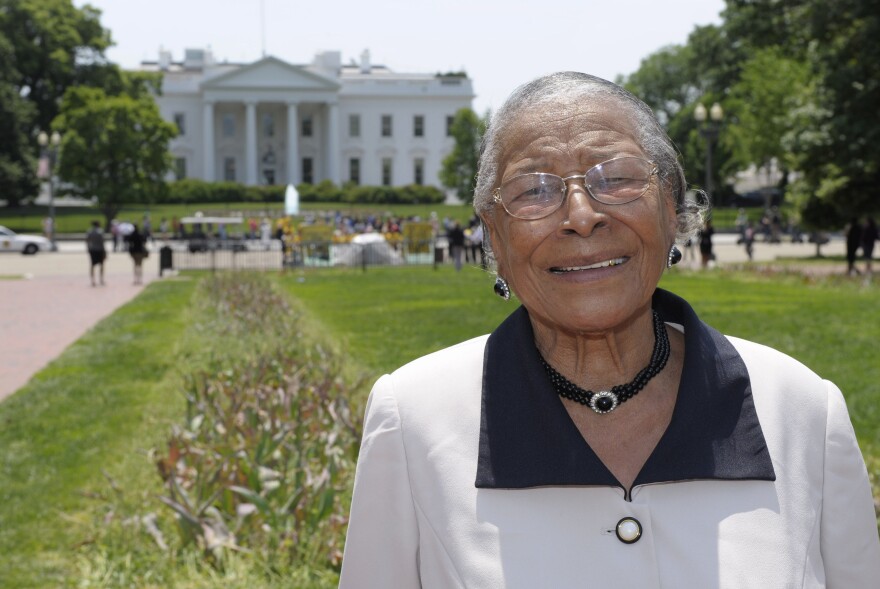During her walk home from church one evening in 1944 in Abbeville, Ala., Recy Taylor was forcefully taken into the woods by six white men and then raped multiple times.
Afterward the men took her back to town, but threatened to kill her if she told anyone what happened.
But Taylor's story was shared, and when people at the NAACP heard about it they sent out an activist, Rosa Parks, to investigate.
Despite the rapists being identified, and at least one man's confession to the crimes, none were ever punished.
Taylor died on Dec. 28, 2017, at 97 in Abbeville, three days before her 98th birthday.
When talking with NPR's Michel Martin in 2011, Taylor said that afterward, she didn't leave her house at night because she was afraid that "maybe something else might happen."
"I hated it happened to me like that, but it just happened to me and I couldn't help myself," Taylor said. "The peoples there, it seemed like they wasn't concerned about what happened to me. They didn't try to do nothing about it. I just get upset because I do my best to be nice to people because I don't want people to mistreat me and do me any kind of way. And I have to live with it, 'cause I had to live with a lot with going through with this."
Taylor received a formal apology from the state of Alabama nearly 60 years later, in 2011, after historian Danielle McGuire published a book, At the Dark End of the Street: Black Women, Rape, and Resistance — a New History of the Civil Rights Movement from Rosa Parks to the Rise of Black Power.
The apology, McGuire says, is all Taylor really wanted.
"I know for her that that meant a whole lot. It wasn't justice — it wasn't her assailants being convicted of a horrible crime and going to jail. But it meant something," McGuire told All Things Considered host Ari Shapiro. "For the first time the governor of Alabama had to say her name and had to be honest about the way in which the state tried to bury her story, refused to investigate it, refused to listen to her. So it was a kind of reckoning — it was powerful."
McGuire first met Taylor in 2009, when she visited Taylor's brother's house and they watched the inauguration of President Barack Obama together.
"We were in her brother's living room in Abbeville, Ala., and we were watching the inauguration on this little black-and-white television," McGuire says. "I turned to Recy, and I said, 'Did you ever think that an African-American woman would become first lady?' and she looked at me and said, 'Not in my lifetime.' "
McGuire spent a lot of time with Taylor. When Taylor died, McGuire wrote on Twitter that "[Recy Taylor's] resistance to rape helped spark the civil rights movement and her testimony against her assailants helped lay the foundation for the women's movement."
McGuire also said that in today's post-Harvey Weinstein world, where Hollywood's "Time's Up" initiative commanded attention at this year's Golden Globes, women can say #MeToo because Taylor said it years earlier.
"Decades before the women's movement, decades before there were speak-outs or anyone saying 'me too,' Recy Taylor testified about her assault to people who could very easily have killed her — who tried to kill her," McGuire says. "If she could do that then, with all of that risk and terror surrounding her, then we all need to stand up and say — when we have to — me too."
Though McGuire talked with Taylor about the darkest parts of Taylor's life, she still got to see her as a person.
"She was funny, witty. She was a churchgoer. She loved going to church, she loved to sing. She was very welcoming to me, always willing to speak with me," McGuire says. "Her whole family was just incredibly gracious."
Matt Ozug produced and Renita Jablonski edited this piece for on-air.
Copyright 2022 NPR. To see more, visit https://www.npr.org.







